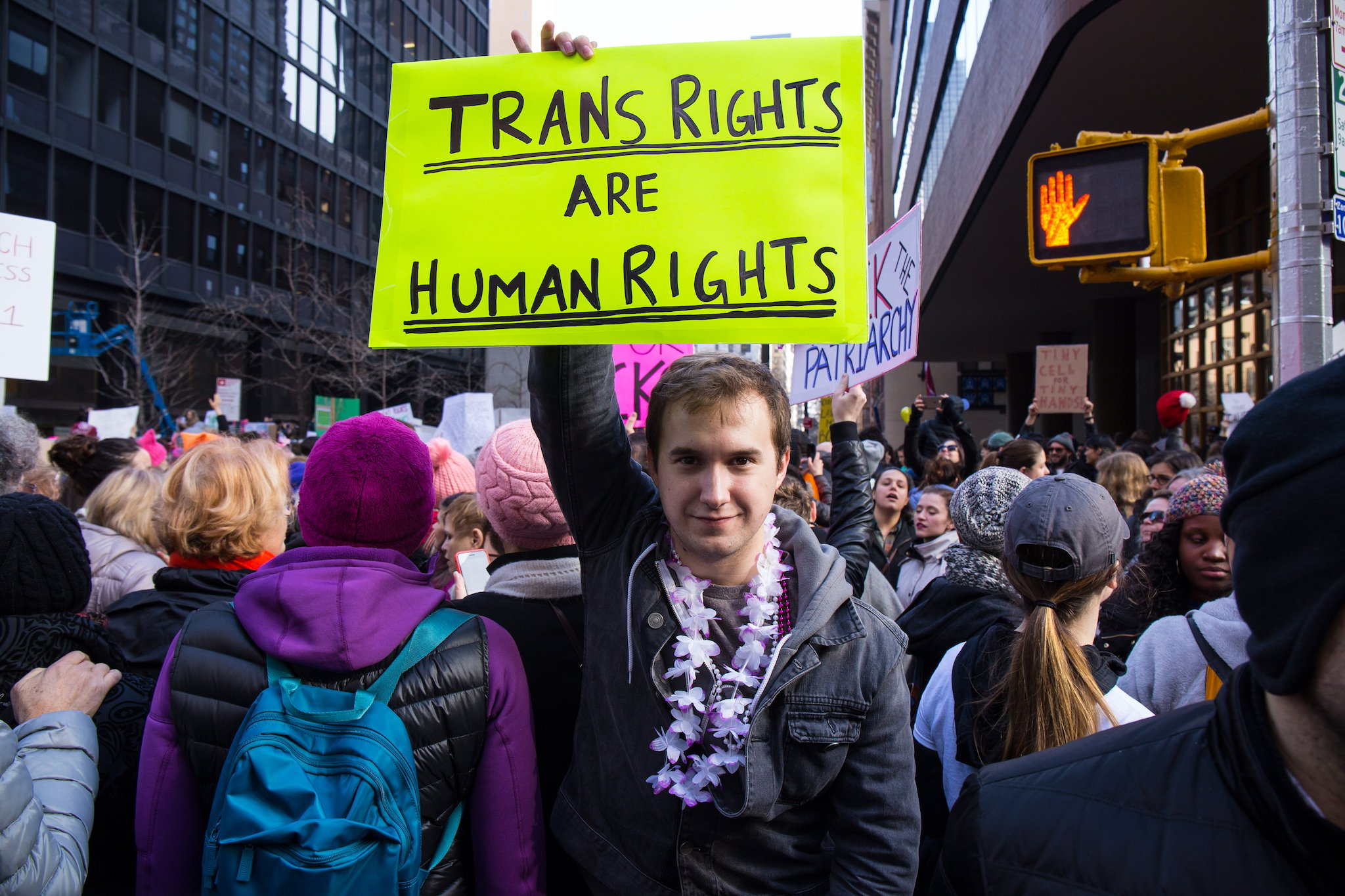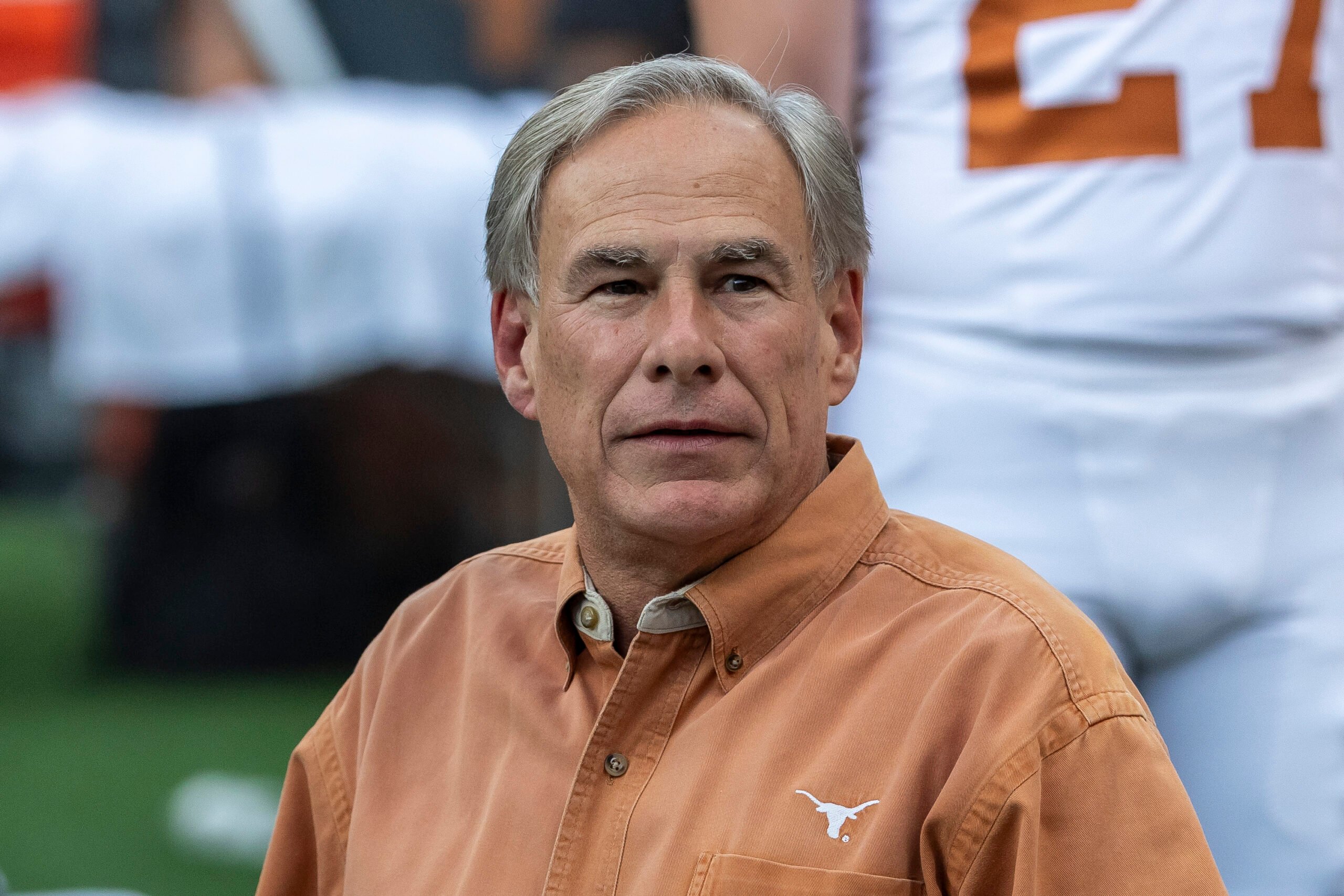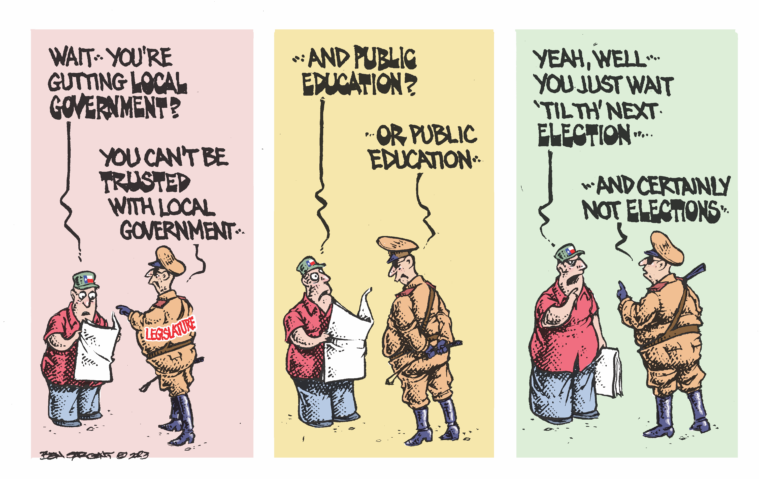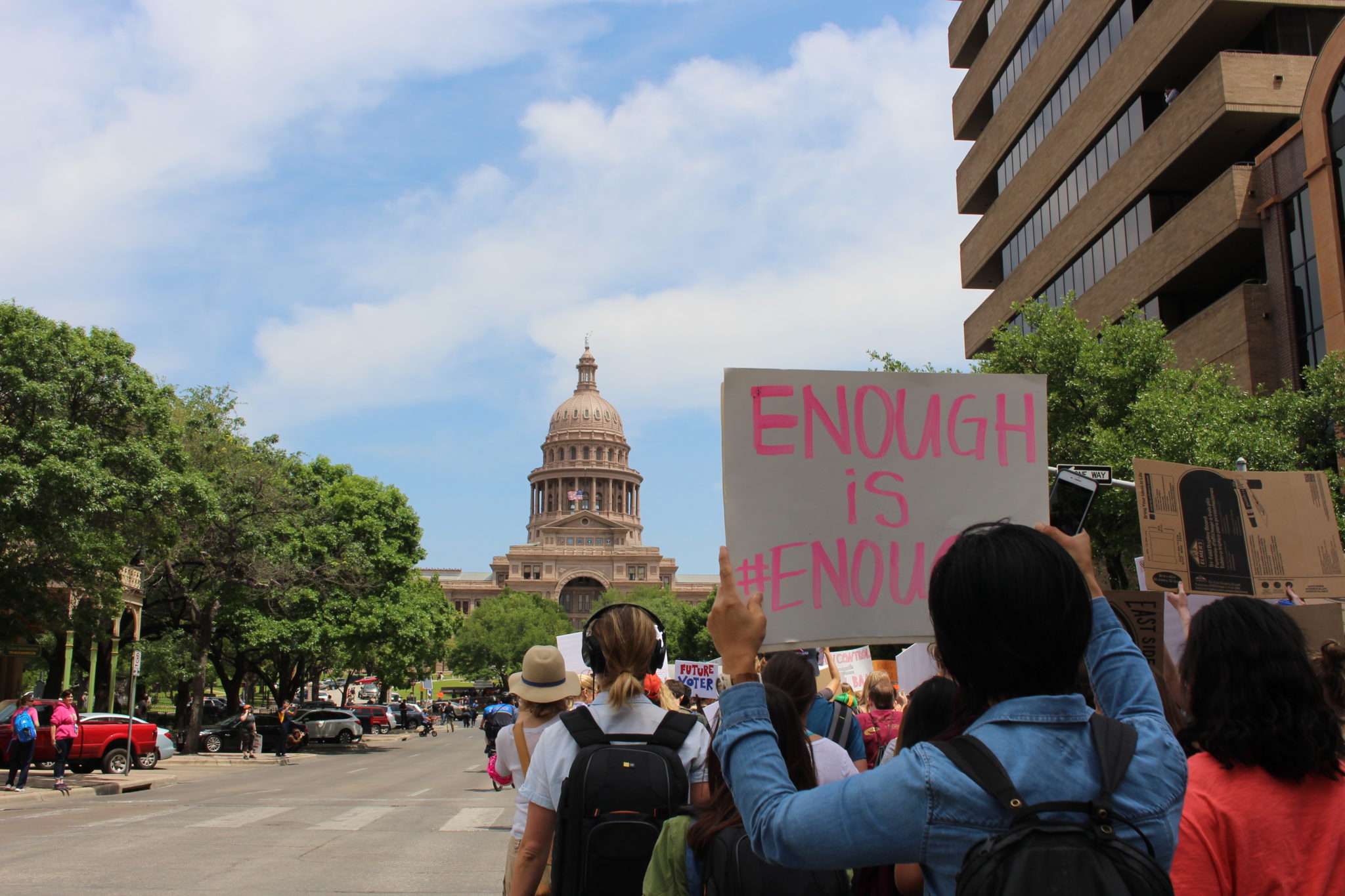
In Their Rush to Appear Pro-Israel, Texas Lawmakers May Have Stepped on Free Speech
A growing number of people have reported that a state law is forcing them to choose between their political beliefs and payment for their labor.
Above: Students march at the Texas Capitol.
To make extra money while attending the University of Texas at Austin, Obi Dennar often worked as a judge for high school debate tournaments. In October, after working a two-day tournament at Klein High School near Houston, Dennar noticed a clause in his contract that he’d never seen before.
“Contractor hereby certifies and verifies that neither Contractor, nor any affiliate … boycotts Israel, and contractor agrees that Contractor … will not boycott Israel during the term of this agreement,” it read.
Dennar was shocked. As a college student, he had been involved with the Palestine Solidarity Committee, a long-standing pro-Palestine group at UT that’s active in the broader “boycott, divest, sanction” (BDS) movement that seeks to economically pressure Israel through public campaigns. Dennar recalled that a school official told him and the other judges that any discrepancies in the contract could result in legal consequences.
“I thought ‘wow,’ I can’t sign this because even if they were just to Google my name they will be able to find that I’ve been a part of groups that advocate for Palestinian rights,” Dennar said. Rather than put himself at legal risk or violate his conscience he decided not to sign the contract, forfeiting the $150 he was owed. “It’s pretty frustrating given that I’m in college and every dollar matters. I find that it’s very suspicious, but also very wrong.”
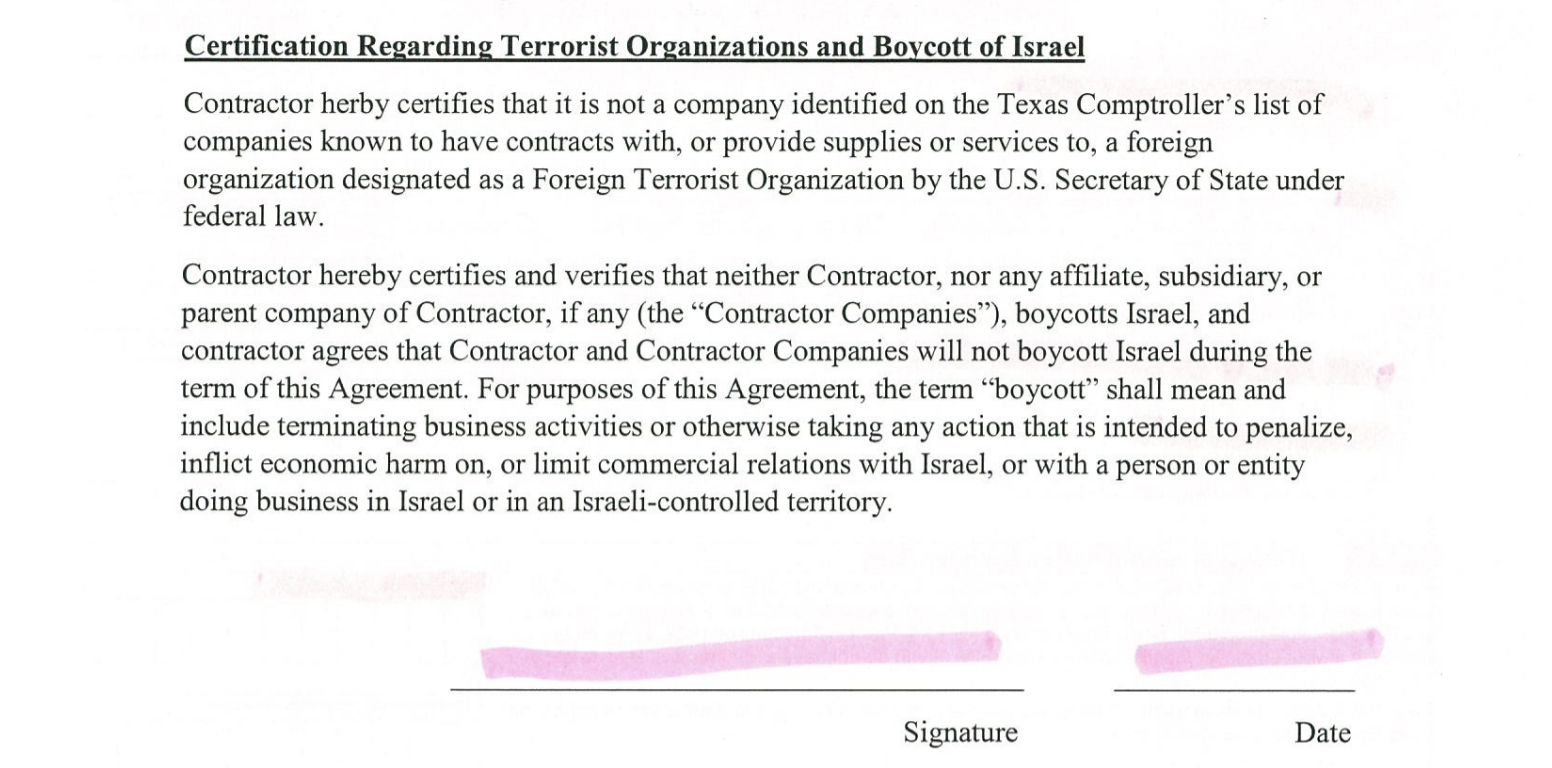
The contract clause is the result of a new state law. Passed in 2017 by the Texas Legislature with overwhelming bipartisan support and little debate, House Bill 89 prohibits governmental entities from contracting with companies and individuals that have or will “boycott Israel.” As a result, government agencies, including public schools and universities, are now requiring contractors to pledge that they don’t participate in economic protests of Israel. A growing number of people, including Dennar, have reported that they’ve been forced to choose between their political beliefs and payment for their labor.
Klein ISD spokesperson Denise McLean said the school was simply following the law. The contract “was sent to all prospective judges prior to the tournament, and prospective judges were expected to read and sign the contract in order to receive payment,” she said.
But Dennar said the state of Texas is inappropriately policing a particular political view. “Essentially, what they are saying is that you can be a member of any racist organization, and that’s completely fine, as long as you don’t boycott the state of Israel,” Dennar said.
Texas lawmakers, both Democrats and Republicans, are often eager to prove their pro-Israel bona fides. When he signed HB 89 into law last year, Governor Greg Abbott said “anti-Israel policies are anti-Texas policies.”

“Israel is our fourth largest trade partner, and it’s important for us to support the economy of our friend and trade partner. We also share the same values,” the law’s author, state Representative Phil King, told the Tel Aviv-based newspaper Haaretz in October. King didn’t respond to questions for this story.
But lawmakers don’t seem to have thought through the free speech implications, especially for public schools and universities. In February, Vanessa Angélica Villarreal, a Rio Grande Valley native and author, put on a creative writing workshop for the Spanish department at the University of Houston. Weeks later, she was told by university officials she would need to sign a contract that included the anti-boycott clause to receive the $700 she was owed. When Villarreal refused, a school employee forged her signature and subsequently resigned, according to the Houston Chronicle. School officials told the newspaper in May that Attorney General Ken Paxton had since issued “informal guidance” that campus speakers could be paid without signing the contract.
Still, the clause appears to be widely used. The Texas Association of School Boards issued guidance to school districts last year, recommending that schools seek written verification from companies and individuals that they haven’t and won’t boycott Israel. Austin, Houston and Dallas also include the pledge in their contracts. The Observer confirmed that three of the state’s largest university systems — the University of Texas, Texas A&M and the University of Houston — do as well.
“Essentially, what they are saying is that you can be a member of any racist organization, and that’s completely fine, as long as you don’t boycott the state of Israel.”
Rahul Saksena, a staff attorney for Palestine Legal, said the law is “unconstitutional because the right to engage in political boycott, like a boycott for Palestinian rights, is a right that the Supreme Court has recognized to be protected by the First Amendment.”
Texas is among at least 24 other states that have enacted such legislation, known as anti-BDS laws. In January, a federal judge temporarily blocked Kansas’ version of the law, ruling that it likely violated the First Amendment.
Not a single member of the Texas House voted against HB 89 in 2017. In the Senate, Robert Nichols was the only Republican to vote against the measure, along with four Democrats who opposed.
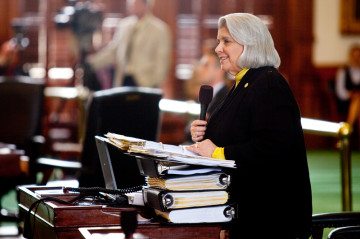
State Senator Judith Zaffirini, D-Laredo, said that the law in some instances has been used as a “problematic litmus test that goes well beyond the legislation’s purpose.”
For example, Dickinson, a small town in Galveston County, was threatened with lawsuits a few months after the law passed when it temporarily required residents displaced by Hurricane Harvey to sign the anti-BDS clause in an application for disaster aid. “I am confident no senator even thought of such an application of this law,” Zaffirini said in a statement.
